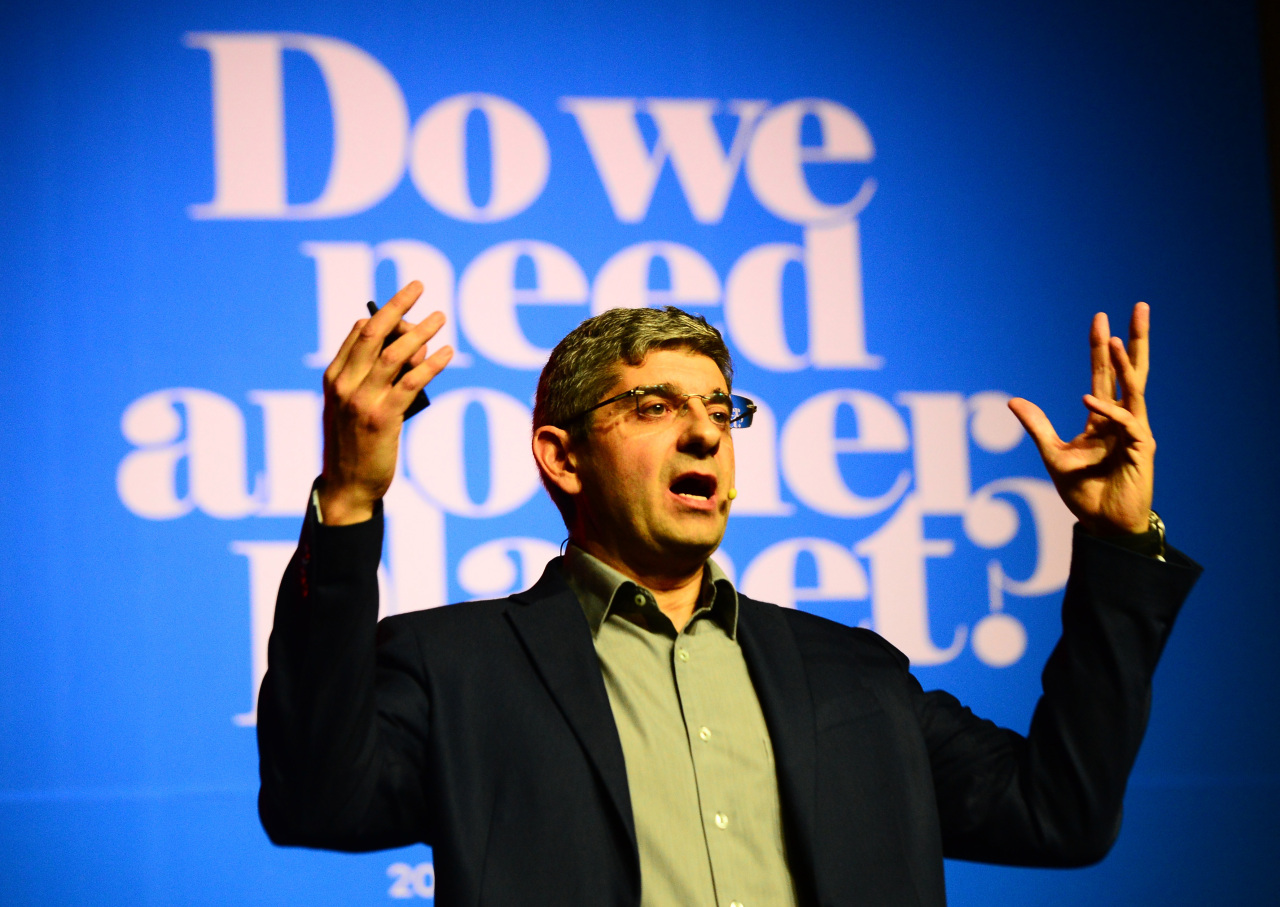[Herald Design Forum 2019] Astronomer Ribas stresses importance of preserving our ‘Pale Blue Dot’
By Yoon Min-sikPublished : Oct. 10, 2019 - 17:24
Finding another planet with a hospitable environment for humans has been a long-cherished wish for mankind.
Astronomer Ignasi Ribas, a leading expert in that field, however, stresses the importance of preserving the Earth’s environment, pointing out that migrating to another planet is science fiction, at least for now.
Astronomer Ignasi Ribas, a leading expert in that field, however, stresses the importance of preserving the Earth’s environment, pointing out that migrating to another planet is science fiction, at least for now.

“Can another planet be a possible second home (for humans to live in)? The answer is no, and if it is possible, it would take forever to get there,” said Ribas, during the Herald Design Forum 2019 held Thursday at the Grand Hyatt Seoul.
Ignasi Ribas, director of the institute of Studies of Catalonia and researcher at the Institute of Space Sciences, part of the Spanish National Research Council, pointed out that catastrophic events like asteroid collision is a real possibility, albeit one that is rare -- as seldom as once in 7 million years.
He has been actively involved in projects to discover new planets that are similar to Earth, including Carmenes and European Space Agency space missions Cheops, Plato and Ariel. His work focuses on exoplanet research and precise knowledge of the stars.
One notable work has been his contribution to the landmark discovery of the so-called “super-Earth” Bernard Star b six light years away, orbiting Barnard’s Star which is the closest single star to the sun and second only to the Alpha Centauri triple stellar system.
Ribas explained that the astronomers have discovered around 4,000 planets outside the solar system, and it was unlikely that Earth is unique out of potentially billions of planets in this galaxy alone.
But the glaring problem is that these are light years away.
“There is not even one of these (potentially habitable planets) close to Earth,” Rabis said.
“Roads to some place habitable for humans can seem to be very long and not straight,” he said, pointing out that it would take around 75,000 years via the fastest means available to humans to reach Proxima Centauri, which is one of the nearest destinations to find a planet that is potentially habitable.
Furthermore, out of the 21 potentially habitable planets out of the 4,000, it is uncertain how many of them actually have the right conditions -- water on the surface, have solid surface, or are human friendly.
“Earth is still unique and the best place for us to live in, by all means,” Rabis said. “There is no reason to think that leaving our planet is viable for centuries. We really have to look after what we have.”
He pointed out that our actions may be making the planet inhospitable for us, not knowing the clear consequences of our actions.
“It is like poking a beast. … What we humans do is like playing around with a thermos,” Rabis said, stressing the importance of preserving the only viable living option that humans will have for at least centuries.
“It is about preserving humans, cultures, traditions, language, values and everything else.”
(minsikyoon@heraldcorp.com)








![[KH Explains] How should Korea adjust its trade defenses against Chinese EVs?](http://res.heraldm.com/phpwas/restmb_idxmake.php?idx=644&simg=/content/image/2024/04/15/20240415050562_0.jpg&u=20240415144419)











![[Today’s K-pop] Stray Kids to return soon: report](http://res.heraldm.com/phpwas/restmb_idxmake.php?idx=642&simg=/content/image/2024/04/16/20240416050713_0.jpg&u=)